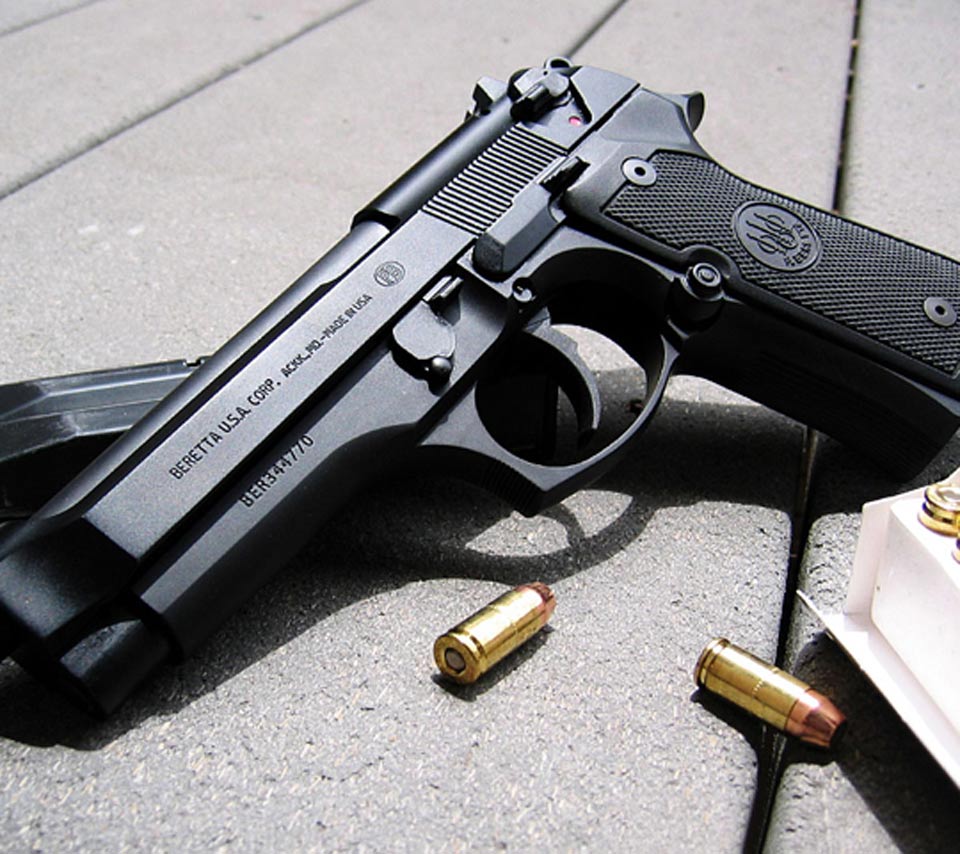
Las Vegas Domestic violence charges can be devastating and embarrassing both personally and professionally. Often an accused will do anything to make these criminal charges go away even if he or she is innocent. As a result, many individuals charged of domestic violence will plead guilty without realizing all the rights he or she is relinquishing.
In a recent United States Supreme Court decision, Voisine v. United States, the Court ruled individuals convicted of a misdemeanor domestic violence charge, cannot own or possess a firearm under U.S.C. §922(g)(9). It is immaterial whether the conduct that led to the domestic violence charge involved a firearm.
Domestic Violence and Firearm Debate in the United States
In a 6-2 decision, the Supreme Court decided in Voisine an individual convicted of misdemeanor domestic violence loses the right to own or possess a firearm regardless of whether the conduct was considered reckless or intentional under the applicable state law.
Whether an individual should lose gun rights for a misdemeanor domestic violence conviction has been long debated in the United States. In 2014 the United States Supreme Court ruled in U.S. v. Castleman 134 S. Ct. 1405, 1409 (2014) that an individual loses his or her gun rights following a conviction for domestic violence if the conduct was intentional. However, it remained unsettled whether an individual should lose gun rights for unintentional, yet reckless domestic violence offense.
The petitioners in Voisine were both convicted of domestic violence under Maine Criminal Code § 207. Maine Criminal Code § 207 defines assault as “… intentionally, knowingly or recklessly causes bodily injury or offensive physical contact to another person”.
Because the statute is divisible, meaning an individual can be convicted of domestic violence for intentional or reckless conduct, the petitioners asserted the conduct leading to the domestic violence conviction was reckless and should not be considered a violation of U.S.C. §922(g)(9).
Under U.S.C. §922(g)(9) “it is unlawful for any person who has been convicted in any court of a misdemeanor crime of domestic violence to… possess in or affecting commerce, any firearm or ammunition; or to receive any firearm or ammunition which has been shipped or transported in interstate or foreign commerce”.
Supreme Court Rules Individuals Convicted of Domestic Violence Lose Gun Rights
In the majority opinion, Justice Kagan asserted an individual should lose his or her gun rights for both intentional and reckless domestic violence offenses. In the opinion, Justice Kagan distinguishes the difference between reckless and accidental conduct. She states an individual who accidentally drops a plate near his or her family member and causes injury is different from the individual who hurls the plate at his or her family member.
Specifically, she stated “That hurt counts as a “use” of force even if the husband did not know for certain (or have as an object), but only recognized a substantial risk, that a shard from the plate would ricochet and injure his wife.”
Because of the active employment of force during reckless conduct and conscious disregard of the substantial risk of causing harm, an individual is precluded from gun ownership under U.S.C. §922(g)(9).
Domestic Violence Law in Nevada
Under Nevada law, there is a wide array of conduct which constitutes domestic violence. An individual may be convicted of domestic violence under NRS 33.018 for engaging in the following criminal acts against a relative or person with whom he or she is in a dating relationship:
- Battery
- Assault
- Sexual Assault
- Stalking
- Arson
- Trespassing
- Larceny
- Destruction of private property
- False Imprisonment
- Unlawful entry to the other person’s residence
The following persons are considered a family member:
- Spouse or former spouse
- Blood Relatives (children, parents, siblings, cousins, aunts, uncles, grandparents, etc.)
- Relatives by marriage (step-parents, step-siblings, step-children etc.)
- Other person with whom the person is residing
- Other person with whom the person is having a dating relationship
- Other person with whom the person has a child in common
The term “dating relationship” means frequent, intimate associations primarily characterized by the expectation of affectional or sexual involvement. The term does not include a casual relationship or an ordinary association between persons in a business or social context.
Conclusion
A conviction for domestic violence under Nevada law can result in the loss of the right to own or possess a firearm in addition to restraining orders or jail time. It is important to consult an experienced Las Vegas criminal defense attorney to increase your chances of retaining your constitutional rights.
Joel M. Mann is an experienced Clark County criminal defense attorney with over 18 years of experience defending individuals facing the toughest criminal charges, including domestic violence, battery causing substantial bodily harm, battery domestic violence, and battery domestic violence with strangulation.
Contact Joel M. Mann of the Joel M. Mann – Las Vegas Criminal Defense Lawyer at (702) 474-6266 to schedule an initial consultation. The Joel M. Mann – Las Vegas Criminal Defense Lawyer strongly defends individuals throughout Clark County, including Las Vegas, Henderson, Boulder City, Mesquite, and surrounding areas.
Additional Resources
- Domestic Violence & Firearms – Visit the Smart Gun Laws website to read about the dangers of guns in the hands of domestic abusers, along with summaries of state and federal laws concerning firearm possession.
- Domestic Abusers Owning Guns – Read more about why domestic abusers frequently get to keep their guns
- Safe Nest – Read more about how Safe Nest is Nevada’s largest and most comprehensive charity devoted solely to domestic violence issues.

















